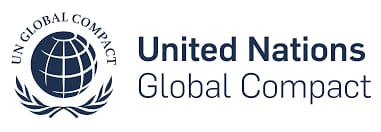The United Nations Global Compact Network Nigeria (UNGC) alongside stakeholders in the fight for gender equality have advocated for more investment in women.
The agency made this known at 10th annual Ring The Bell for Gender Equality and Closing Gong ceremony held at the Nigeria Exchange Group (NGX), Lagos State, to mark this year’s International Women’s Day.
Addressing participants at the event, Chair of the UN Global Compact Network Board, Oluwasoromidayo George, who stressed the urgent need to bridge the gap which has derailed progress in the achievement of SDG 5 (Gender Equality) by 2030, said despite knowledge of the compelling case for gender equality, progress on women’s rights remains insignificant.
World Bank 2023 data shows only 40 per cent of adult women are engaged in the labour force compared to over 70 per cent of the male, while UN estimates that gender pay gap (the disparity of payment between male and female workers in same position or level in workplaces) costs the global economy $160 trillion annually.
“Women and girls in Nigeria are being neglected, with only two of the SDG 5 indicators performing near target, and zero SDG 5 indicator performing at the targeted level,” said executive director of the UN Global Compact Network Nigeria, Naomi Nwokolo.
Whilst commending the role of private sector in the driving gender equality forward, George, Nwokolo and stakeholders advocated for Gender Lens Investing (GLI), investing in women, implementation of the gender-responsive financing, and supporting female changemakers – in line with the UN 2024 International Women’s Day ‘Invest In Women: Accelerate Progress’ will empower women for a more sustainable and prosperous future.
“Impact funds can strengthen Gender Lens Investing to pave the way for inclusive and sustainable development that leaves no woman or girl behind,” said Nwokolo.
The UN Global Compact Network Nigeria is one of the 74 country offices of the United Nations Global Compact, which is the world’s largest corporate sustainability initiative, that supports companies and stakeholders in understanding how to run a responsible business within a global and local context, and provides guidance to translate sustainability commitments into action – via its Ten Principles and the 17 SDGs.











